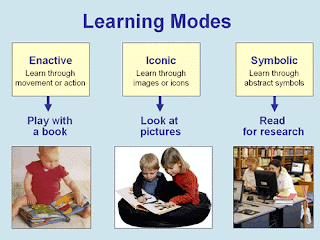Skinner’s Operant Conditioning Theory & Discovery Learning

Skinner’s Operant Conditioning Skinner is regarded as the father of Operant Conditioning, but his work was based on Thorndike’s (1898) law of effect. It is on the matter of behavioral conditioning (not then formulated as such) which states that "Behavior that is followed by positive consequences is likely to be repeated, and behavior followed by unpleasant consequences is less likely to be repeated". Operant conditioning is a method of learning that occurs through rewards and punishments for behavior. Through operant conditioning, an individual makes an association between a particular behavior and a consequence (Skinner, 1938). Skinner identified three types of responses, or operant, that can follow behavior. • Neutral operants: responses from the environment that neither increase nor decrease the probability of a behavior being repeated. • Reinforcers: Responses from the environment that increase the probability of a behavior being repeated...


